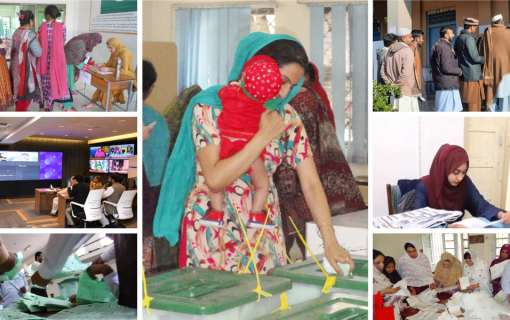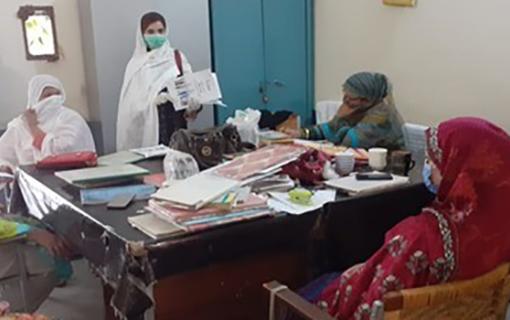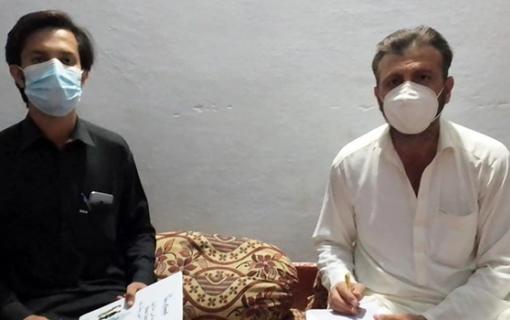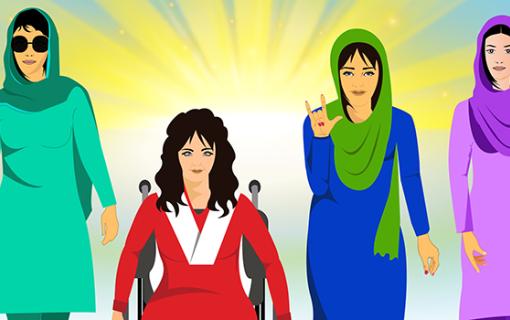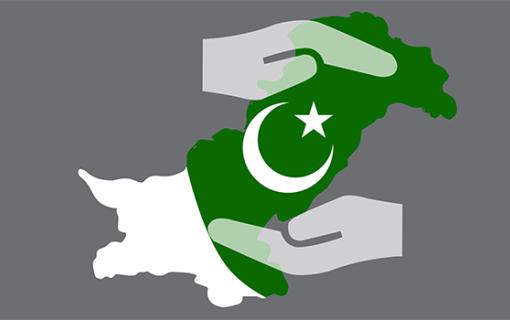Using a Gender Lens to Examine Pakistan's Historic Election
Pakistan’s May 11, 2013, general elections were historic, marking the first transfer of power between two democratically-elected civilian governments after completion of a full term.
These elections were also held with greater awareness of the need for women’s participation. In this interview, IFES Gender Officer in Pakistan Saadia Mumtaz answers some questions about increasing gender equality in this poll.
Pakistan held elections on May 11, 2013. What was the turnout of the general population and women, specifically?
The overall turnout for the 2013 general elections was significantly higher than in 2008. The Election Commission of Pakistan (ECP) announced that 55 percent of approximately 86 million registered voters participated, as opposed to 44 percent in 2008.
This year was the first time the ECP took the initiative to collect gender-disaggregated voter turnout data. The ECP is still in the process of compiling information from all constituencies. Once the data is available, we will have a better idea about women’s turnout.
How did women’s participation in this election compare to their participation in previous elections?
The number of women candidates contesting elections on general seats increased significantly: 64 women competed for general seats in the National Assembly (NA) in 2008, while 161 ran in 2013. Despite an increase in women candidates, the elected number of women has decreased from 16 in 2008 to six in 2013 for the NA. Further, when looking at the increase in women candidates, one should also take into account the overall number of candidates contesting NA general seats, which was double of 2008.
Regardless, the increase in women candidates is an important change. Unfortunately, as with previous elections, there have been reports from the media and civil society organizations that political parties in some areas put unofficial agreements in place to bar women from voting. These were isolated incidents, mainly in the province of Khyber Pakhtunkhawa. The ECP even ordered a re-poll in two female-only polling stations in Provincial Assembly Constituency PK-60 Battagram on May 23, but not a single woman came to cast her vote. What efforts were made by the ECP and civil society to increase women’s participation, specifically, and voter participation, in general?
The ECP and civil society’s efforts to increase the participation of women started long before elections, when the ECP and the National Database and Registration Authority (NADRA) were preparing draft electoral rolls. Serious efforts were made to register women, especially in less-developed areas. There were 35,637,711 women on the 2008 final electoral roll, compared to 37,597,415 on the 2013 final electoral roll. Despite increased registration numbers, the 2013 roll, which was compiled using computerized national identity card (CNIC) information of all eligible Pakistanis, still does not include approximately 20 percent of eligible Pakistani women.
Having a CNIC is a prerequisite for voter registration. Several civil society organizations initiated programs designed to facilitate women applying for CNICs. The ECP and NADRA also implemented a temporary, semi-automatic voter registration process when citizens register for their CNICs.
For the general population, the ECP also initiated an SMS service that voters could use to check their registration status, and later polling station, by sending a message to 8300.
As 2013 was the first time that a democratically-elected Parliament completed its term, the ECP made a significant effort to increase overall voter participation, giving due attention to women. On October 17, 2012, Pakistan celebrated its inaugural National Voter’s Day to launch the ECP’s Voter Education Plan. The ECP, with the support of IFES, hosted events nationwide.
How has IFES helped empower women and marginalized populations in Pakistan, and what is IFES’ approach to promoting gender equality?
Women’s empowerment is present in all IFES programming. Prior to the 2013 general elections, IFES conducted a survey to assess barriers to women obtaining CNICs. The findings identify certain patterns, which are useful to develop future interventions, such as focusing on young women living in low-income, urban areas. Ahead of the general election, IFES awarded subgrants to local civil society organizations to increase electoral participation. One of the sub grantees, Pak Women, is focusing on advocacy for persons with disabilities in Khyber Pakhtunkhwa.
What are the main challenges to women’s participation and we overcome them?
A patriarchal culture, agreements between candidates and political parties to prevent women from voting, poverty, lack of awareness and preoccupation with domestic chores all prevent women from voting. These challenges must be overcome by awareness and education, as well as legal reform with enforcement mechanisms to ensure women are allowed to participate.
For women candidates, it is difficult to obtain party support. This year, most of the women who ran for general seats opted to contest as independent candidates. Running without political party support is challenging. Of the six women who were elected to general seats in the NA, none ran as independents. There should be changes in electoral laws to ensure participation of women in political parties as members, as well as party executive committees. For instance, political parties could be required to allocate a minimum percentage of tickets to women for general seats, or they would not be allowed to contest elections. Such reforms may remove some of the obstacles to women’s political participation.
Changes should also be made to the method of election for women to reserved seats. At the moment, political parties submit lists for reserved seats for women and non-Muslims to the ECP prior to elections. The decision about who is nominated rests entirely with the party leader and, in practice, the lists for women and minorities are not publicized by the ECP before elections. The nomination process should also be more transparent and democratic, and the electoral system could be changed to make the women and minorities in reserved seats more accountable to the public rather than political party leaders.
IFES’ Supporting Electoral Reforms in Pakistan (SERP) project is funded by the Canadian International Development Agency, the European Union and United Kingdom (UK) Aid through the UK Government. Contents of this publication are the sole responsibility of IFES.




